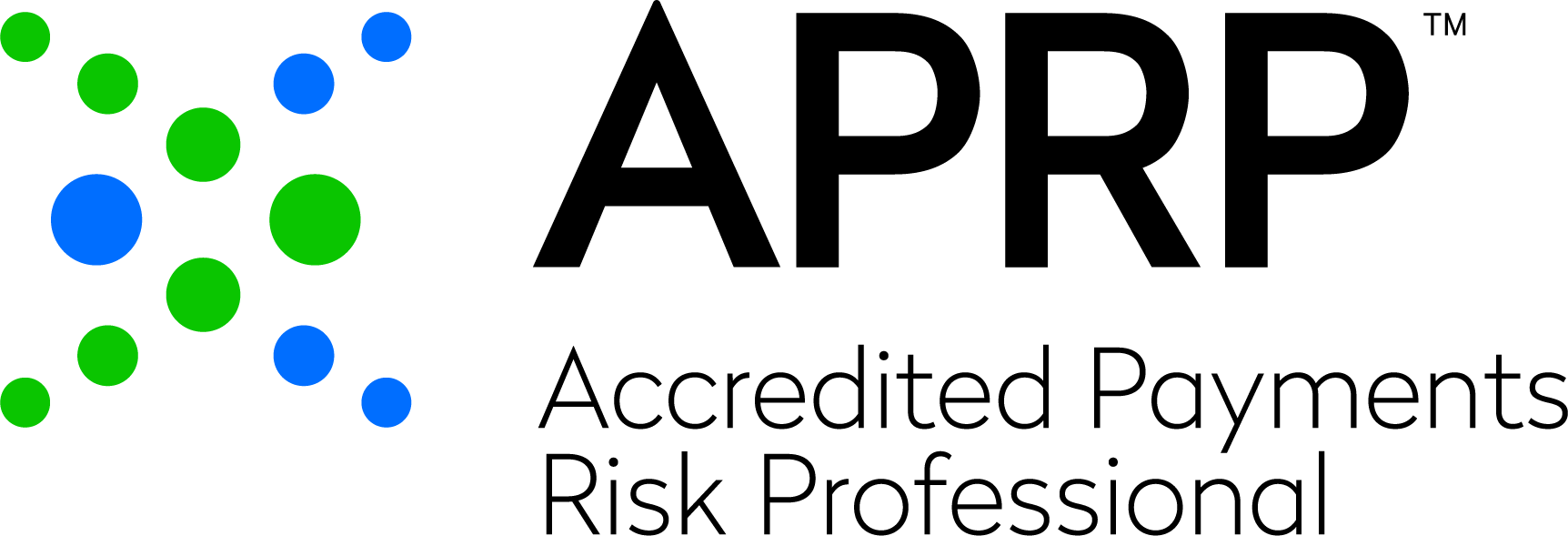
The Accredited Payments Risk Professional (APRP)
What is APRP Accreditation?
The Accredited Payments Risk Professional (APRP) credential demonstrates mastery of the complexities of risk management for ACH, check, wire, debit, credit and prepaid cards, and emerging and alternative payments. The program is administered through Nacha. It is recommended that candidates spend two years working in the payments industry before taking the APRP exam.
Why should I become an APRP?
Earning your credential as an APRP has a wide array of benefits. As an individual, accreditation demonstrates to your employer your commitment to the profession, which can provide opportunities for personal career growth. It validates to regulators and examiners that your financial institution or company is committed to risk management and regulation compliance.
These benefits apply to solution providers, processors and even end users. By having an APRP on staff, an end user like a business or government agency can more effectively manage ACH Network use and enhance its risk management profile. Similarly, solution providers and processors need qualified APRPs in order to ensure that they’re complying with FIs and business clients.
About the APRP Exam
Note that the 2020 APRP Exam Window has been rescheduled for November-December 2020. WesPay's preparation program dates and review sessions have accordingly been adjusted. The Learning Center Catalog is the definitive source for class and program dates, times and locations.
The APRP exam consists of 120 multiple choice questions. Candidates will have three hours to complete the exam. Topics included on the exam are:
- Fundamentals of Payments Risk Management
- Payment Systems
- Payments Risk Policy & Governance
- Payments Risk Management Systems and controls
- Physical and Information Security
- Regulatory Environment
Candidates must register with Nacha to take the exam. Nacha partners with PSI to use its computer-based testing facilities around the country, providing for plenty of freedom in choosing the exam time and locale. After registration, candidates receive instructions on how to select their proctor and exam date, time and location.
| Access Date | Quiz Result | Score | Actions |
|---|



